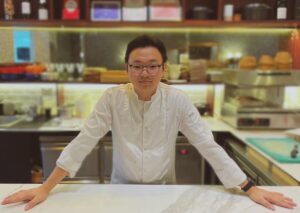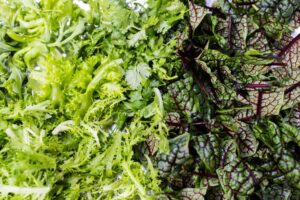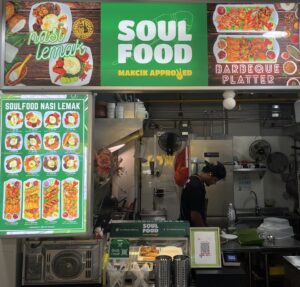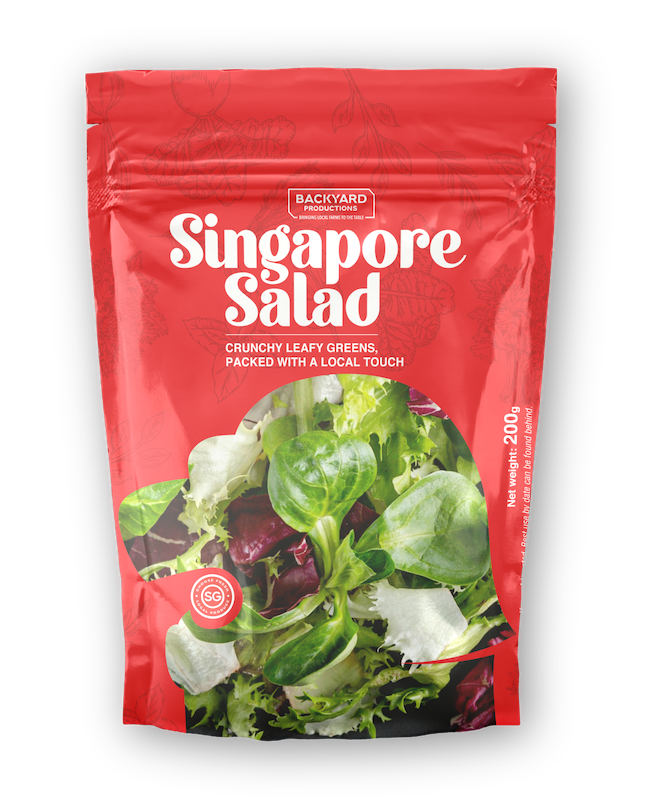
Making farm to table in Singapore a reality
5 Singapore Chefs share reasons why they are choosing to go local when choosing their produce.
It may come as a surprise to many but Singapore grows food ranging from vegetables and herbs to fish and seafood. And that list is expanding as the nation heads towards its 30 by 30 vision of having 30 percent of food needs produced locally by the year 2030.
Locally produced food is increasingly making its way from farm to table. Better yet, restaurants are incorporating local produce into their dishes – from mains and appetisers to desserts and garnishes.
The reasons are obvious. Singapore-based chefs reveal that local produce is more nutritious, fresher, of higher quality than imports, tastes better, and easily available.
1. Healthier and more nutritious
According to Allen Tan, Chef de Cuisine of Saveur, locally sourced ingredients are significantly fresher, healthier and more nutritious.

“For vegetables and seafood, the period between harvest and the kitchen is crucial, particularly in terms of freshness and flavour. And with Singapore’s stringent regulations for local produce, I am confident in the food’s quality, especially when it comes to pesticides, fungicides or contaminants,” said Chef Allen, who learnt about local produce from friends and colleagues in the food and beverage (F&B) industry.
2. Exceptionally Fresh
Seow Tzi Qin, Group Executive Chef of Brewerkz, started actively sourcing for local produce alternatives when the international borders shut down due to COVID-19.

“We were reliant then on our supply of globally sourced produce and ingredients. The instability of food sources caused major disruptions to our restaurant operations which led me to search for alternatives,” said Chef Tzi Qin, who uses locally grown produce such as microgreens, vegetables, eggs, fish, and seafood.
“The freshness of the produce is exceptional as it spends only a short amount of time to be transported as compared to imported produce. It is more nutritious and can be kept for a relatively longer period, resulting in less wastage,” he said.
3. Better quality than imports
Haikal Johari, Chef of Alma, pointed out that “some local products are even better than imported ones as we can get them really fresh.”

“Some customers were surprised when we told them that some of our products are locally sourced. They never knew that Singapore could produce such interesting and quality produce,” said Chef Haikal, who hopes to see a greater variety of vegetables, seafood and quality poultry that is free from antibiotics and hormones.
4. Tastes better

Maxamilian Mepham, Founder and Chef of Green Kitchen, emphasises that fresh food tastes better and contains more nutrients.
“As soon as you cut a plant from the ground, it is decomposing. The faster we can eat them, the better they are for us. Once cut, green veggies lose 80 percent of their nutrients in five days. Being produced locally means we can get them fast with fewer miles travelled. Better for us, better for the plant,” said the chef who believes that quality is everything.
5. Easy availability
Having the ingredients when she needs them is important to Wendy Kuek, Chef of The Summerhouse.

“It is a lot easier to ensure availability of locally grown products when we need then. When we source from overseas, it is more challenging to ensure that the item we want will be available at a specific time. It is even more difficult now due to our current climate where there is constantly disruptions in shipping and supply,” said Chef Wendy whose restaurant harvests from its in-house edible garden to provide unrivalled freshness and provenance to the table.
Farm to table in Singapore

Farm to table is no longer a concept. It is a reality. Lots have been done to make local produce available in supermarkets. While consumer awareness has risen, F&B establishments had been slower to warm up to the idea until recently. They wrestle with issues such as inconsistent supply and high prices.
The pandemic and the war in Ukraine have escalated this problem. Some local agritech farms had to stop production earlier this year because of the rapidly rising energy cost, which makes it unsustainable for their operations. In land scarce Singapore and faced with labour crunch, farmers innovate and leverage technology to maximise space and yield.
Thankfully, some farms are continuing to push on and ramp up as demand increases and F&B outlets start buying local to counter overseas supply chain issues. Buying local produce also promotes sustainability and reduces transport carbon footprint.
“We value sustainability in our restaurant operations and were happy to switch to using more local produce as freshness and quality are assured, with a lower environmental footprint. Buying locally also means that we have a stable supply chain that is less likely to be affected by macro factors such as food shortage caused by global warming, natural disasters, or disease outbreak among livestock. This helps to protect us from price volatility,” said Chef Tzi Qin.
Championing local produce

Backyard Productions is a movement initiated by food distributor FoodXervices Inc in 2019 to increase accessibility to local produce and encourage F&B establishments to support Singapore-grown products. We aim to revolutionise the way food is eaten and grown in Singapore.
We started off by tackling the issues of supporting local farmers and local F&B outlets by bridging the gaps in logistics and network marketing.
Acting like a business partner to farms, Backyard Productions helps curate and aggregate the basket of products that the local F&B community needs and can accept.
According to Chef Haikal, Backyard Productions’ effort is needed to champion these local farmers together, making it much easier for F&B establishments to shop for these consolidated local products.
“In my opinion, Backyard Productions’ support in linking farmers with local F&B communities is brilliant. I like how it can connect chefs with local suppliers to showcase more of what local farms have to offer. We can build more relationships and network with local suppliers with the help of Backyard Productions. We get to share our knowledge of the ingredients’ process and how they are prepared for the table,” said Chef Allen.
Chef Wendy concurs that this is a great move. “Many of these farms produce on a small scale. It is not easy for them to reach out to a large variety or different group of people. Backyard Productions helps them to reach out to more people and gain more awareness.”
Chef Maxamilian believes that supporting local is supporting our community. “Having access to where your food is grown is amazing. Seeing behind the door and getting in contact with the farmers and farming practices are essential. If you have a great supplier. you can create great food.”
It’s not just F&B establishments that should be turning to local produce. It should be a collective effort of farms, F&B outlets and everyone in Singapore.
Chef TQ encourages “all Singaporeans to take pride in choosing local produce where available.”
“Singapore is now a global leader in vertical farming for urban agriculture, and that is an incredible feat considering the many logistical challenges that we managed to circumvent and overcome. The stage is set. It is up to all of us – farmers, consumers, F&B providers, and retailers – to play our part to make this 30 by 30 plan a reality,” he said.
Taste and Dine series
As part of our move to raise awareness of local produce, Backyard Productions is running the Taste and Dine series of dining events in several restaurants from August to October 2022. We work with chefs from different F&B outlets to create dishes using various local products.
Restaurants keen on learning more about how to reap the benefits of supporting local produce can contact [email protected].
JOIN THE
REVOLUTION
Join the revolution and change the future of SG’s food




